Editor's note: "Streaming Time Capsule” is a semi-regular feature on The TV Professor, looking at some of the unusual and maybe worthwhile, and maybe not worthwhile, TV show oddities that you can find online. Our latest installment? Lucy Calls the President, a 1977 TV special featuring Lucille Ball.
Like many people, I’m a pretty serious Lucille Ball fan. If she were alive today and staying in a nearby hotel, I’m sure I’d do something Lucy-esque and disguise myself as a waiter so I could take her room service and get her autograph. Then, of course, I’d be discovered and tossed in the clink for stalking Lucille Ball, and so I guess it’s lucky for me that she isn’t coming to town.
So I was pretty excited when I stumbled on Lucy Calls the President, which is definitely something of a time capsule. Granted, everything we watch on TV is a time capsule, a product of the era it was made in, but some TV shows are timeless and others can become pretty dated.
Lucy Calls the President is a bit of both. It’s sort of a strange piece of TV work and probably not for everybody. But if you’re a devoted fan of Lucille Ball's work, you’ll probably love it... or, well, you'll probably at least enjoy it and find it interesting.
But it helps to know something about the show, if you do end up watching it.
Similar to the Three Stooges’ Kooks Tour that I recently reviewed, Lucy Calls the President happened rather late in Ms. Ball’s career, but it wasn’t the last thing she filmed, not by a long shot, and it isn’t bad. But while it isn’t bad, as noted, you could successfully argue that it's not exactly good. In any case, it’s kind of a surreal piece of television and definitely a product of its time.
Today's "TV Lesson" Breakdown:
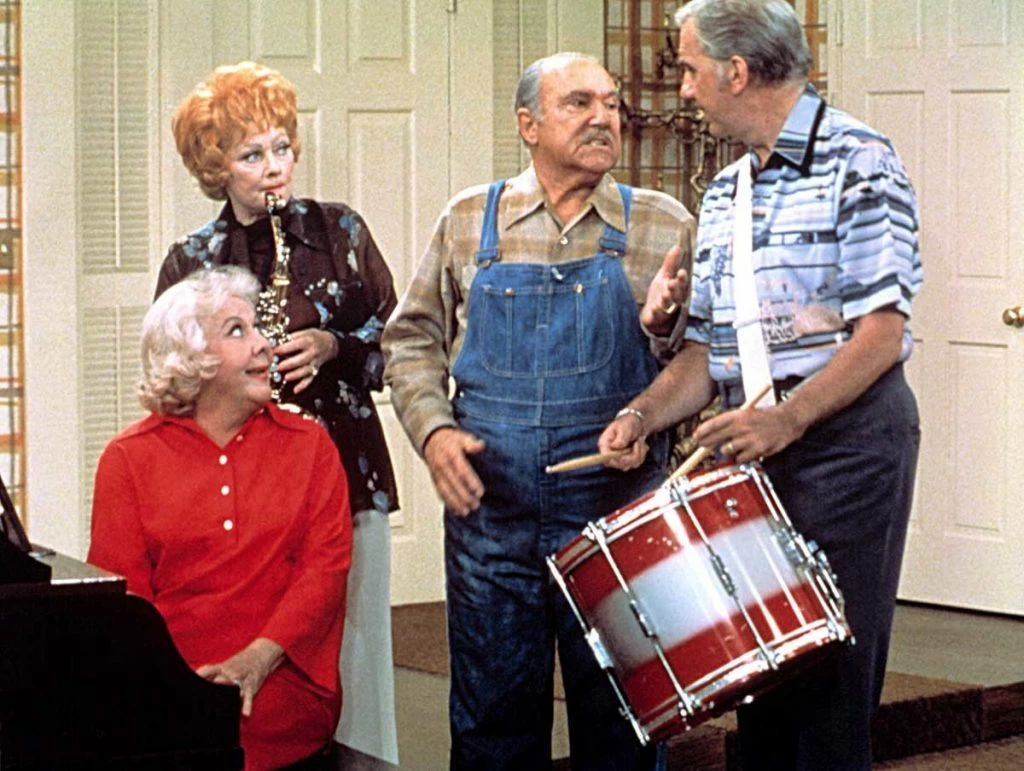
So what is Lucy Calls the President?
Right. I’ve been so busy setting the mood about this show, I haven’t even explained what it is.
Lucy Calls the President was a one-hour TV special that aired in 1977. Ms. Ball had had an amazing run up to this point, with her film career in the 1930s and 1940s and then – while still continuing to make movies – she starred in I Love Lucy (1951-1959) and then The Lucy Show (1962 to 1968) and then Here’s Lucy (1968-1974).
After Here’s Lucy, Lucille Ball was featured in several CBS specials, and Lucy Calls the President is one of those. It aired on November 21, 1977 – under a different title than it now has. Back then, it was simply called A Lucille Ball Special. Apparently sometime after it ran, the official Lucy Calls the President title came aboard.
Bill Carter, then the TV critic for The Baltimore Sun (he would go onto be a TV critic for The New York Times and now covers TV for CNN), explained to his readers on that day, that “for the past few years, her new efforts have not met with nearly so much success. She has done a few specials that were mixes of comedy and drama, clearly something Lucy wanted to do, but they did not go over with her legion of fans. The fans should be much happier with tonight's Lucy special on CBS. It is about the closest thing to vintage Lucy that you are likely to get.”
So what happens in this TV special?
Well, as Bill Carter wrote, “The Lucille Ball Special… amounts to an extended episode of one of the Lucy sitcoms. It is full of the kind of broad, outrageous comedy that made Lucy a TV star."
Ms. Ball echoed similar thoughts in an interview with Tom Shales, then the newly appointed TV critic for The Washington Post, where he would be a presence for years: “There's a lot of Lucy in action in the show, a lot of Lucy shtick. I have different last name, but it's still Lucy," Ms. Ball told him.
Because she’s playing a different character than in her earlier sitcoms, I admit, I found the whole thing kind of weird at first. After all, it wasn’t a TV pilot, setting up the plot for an entire series, and yet, the show feels a lot like one. No, actually, I take that back. Lucy Calls the President kind of feels like it's an episode plucked from the middle of a TV series, and you've just stumbled upon it.
In any case, I had recently been on a kick watching Here’s Lucy episodes, and so to just see Lucille Ball playing this random woman called Lucy Whittaker, instead of Lucy Carter (Here’s Lucy), or Lucy Carmichael (The Lucy Show) or Lucy Ricardo (I Love Lucy), it just felt unsettling.
I’m not being sarcastic or facetious. I guess I just kept thinking, “Why didn’t you just make this TV special a reboot or continuation of Here’s Lucy? Why give us yet another random character named Lucy, who gets into wacky situations?”
So this time, Ball is Lucy Whittaker. Incidentally, her other character's last names on her TV series – Carter, Carmichael and Ricardo -- are all subtle tributes to her ex-husband Desi Arnaz. All of those last names have an “ar” in them. For some reason, Ball dropped that idea with Whittaker. But when she filmed her last sitcom in 1986, the short-lived Life with Lucy, she went back to paying homage to Desi, going with the name, Lucy Barker, which, of course, has that “ar” sound.
So what actually happens in Lucy Calls the President? Well, again, this is basically an hour-long sitcom episode. Lucy Whittaker is a housewife in Bundy, Indiana (there is no such place, but if you want to go looking for the fictional town, Lucy describes it as being 20 miles north of Indianapolis), and she telephones the new-ish president of the United States, Jimmy Carter (he was sworn into office on January 20, 1977; this ran in November).
Of course, when President Carter talks to Lucy (and, alas, we don’t hear Carter’s voice or even an impersonator), she gets all flustered and full of nervous energy.
“Oh, Mr. President? This is...” Lucy turns to her husband, Floyd. “What's my name?”
“Lucy, calm down,” Floyd says.
“This is Lucy Calm Down,” Lucy says, and then collects herself. “Lucy Whittaker. I'm calling from Bundy, Indiana."
Whittaker soon explains the reason for her phone call: the federal government is building low-cost housing on the outskirts of Bundy, which will mean destroying Camp Sunny Slope, a camp for underprivileged children. Lucy asks Carter on the phone, “How would you feel if somebody tore down Amy’s tree house?”
That would be a reference to Jimmy Carter’s daughter, Amy. I’m guessing that 1977 audiences probably found it about as hilarious as you do right now. (Yes, now, I’m being facetious.)
Well, when the phone conversation ends, Lucy informs her husband and father-in-law that President Jimmy Carter is coming to their house at 3 p.m. the next day to discuss the low-cost housing issue. The president as well as the First Lady, Lillian (Carter’s mother), and Amy are going to be at a fundraising dinner that evening, Lucy explains to her husband and father-in-law, “and then they’re going to drive to Chicago and stop right by here and stay for half an hour and talk about the housing project.”
(As unbelievable and sitcom-ish as this scenario sounds, where Lucy calls the President of the United States, and he is suddenly invites himself over, it's actually a plot based in reality. Sort of. A smidgen of reality. Lucy tells his father-in-law, just before she calls Carter, that the president is having one of his "phone-in days." That's a stretch -- Carter didn't have it on his schedule to take random phone calls from just anybody -- but President Carter had said during the election that he had planned on having phone conversations with ordinary Americans, and while that unsurprisingly didn't really happen -- presidents are generally pretty busy -- on March 5, 1977, Carter participated in a radio program called, "Dial-a-President," an idea of Walter Cronkite's, who ended up hosting the program. Nine million Americans tried to get through during the two-hour radio show.)
“Lucy, I’ve got to congratulate you,” Floyd says. “You’re so calm. I’m surprised you’re not just frantic.”
“Oh, why should I be frantic just because the President of the United States is coming to my…” and then the realization of what's about to happen, hits her… “HOUSE!”
Lucy freaks out, and the rest of the episode is Lucy and her family and friends preparing the home for the arrival of the President Carter. Pretty soon, the entire town wants to be at Lucy's house to meet the president.
As you can imagine, plenty of silliness ensues. I won’t go through the entire episode, minute-by-minute, but there's a food fight involving cake frosting, a secret agent getting conked on the head with a skillet, and a president dinner guest list that starts off at 11 and swells to 42. And suffice it to say that Jimmy Carter, alas, did not end up guest starring in this TV special. However, Carter's mother, Lillian, does pop up (as in, we actually see her on camera) for a quick and rather amusing phone call with Lucy Whittaker.
If you are a fan of Lucille Ball, especially if you know her beyond her legacy-defining I Love Lucy TV series and enjoyed her later television work, like on The Lucy Show and Here’s Lucy, the special is absolutely worth watching.
If you aren't a fan, well, there's plenty of other stuff you can watch.
A little about the cast of “Lucy Calls the President.”
There’s a lot to be said about the cast, actually. That’s another reason to watch Lucy Calls the President. The cast is basically a Who’s Who of actors who had worked with Lucille Ball, and it’s both fun to see them, and a little surreal, too.
A list of the highlights.
Gale Gordon. If you’re a fan of The Lucy Show and Here’s Lucy, you know Gale Gordon. He played Theodore J. Mooney on The Lucy Show, the irascible banker boss of Lucy’s, and then Harrison Carter and owner of an employment agency and the boss and Lucy’s brother-in-law. Gordon was a fantastic foil for Lucille Ball in those two shows, and so it’s natural that he would play a significant role in Lucy Calls the President.
But he plays Lucy Whittaker’s father-in-law, Omar.
Her father-in-law?
Gale Gordon was born in 1906. Lucille Ball was born in 1911. It's also worth noting that in every other series he did with Lucille Ball, they played adults who were generally around the same age.
Obviously, you just have to roll with it, but if you think about it for too long, and I did, Lucy Calls the President feels more like The Twilight Zone and less like, well, an I Love Lucy retread.
But other than that bit of unsettling casting, Gordon does his usual masterful job in the episode.
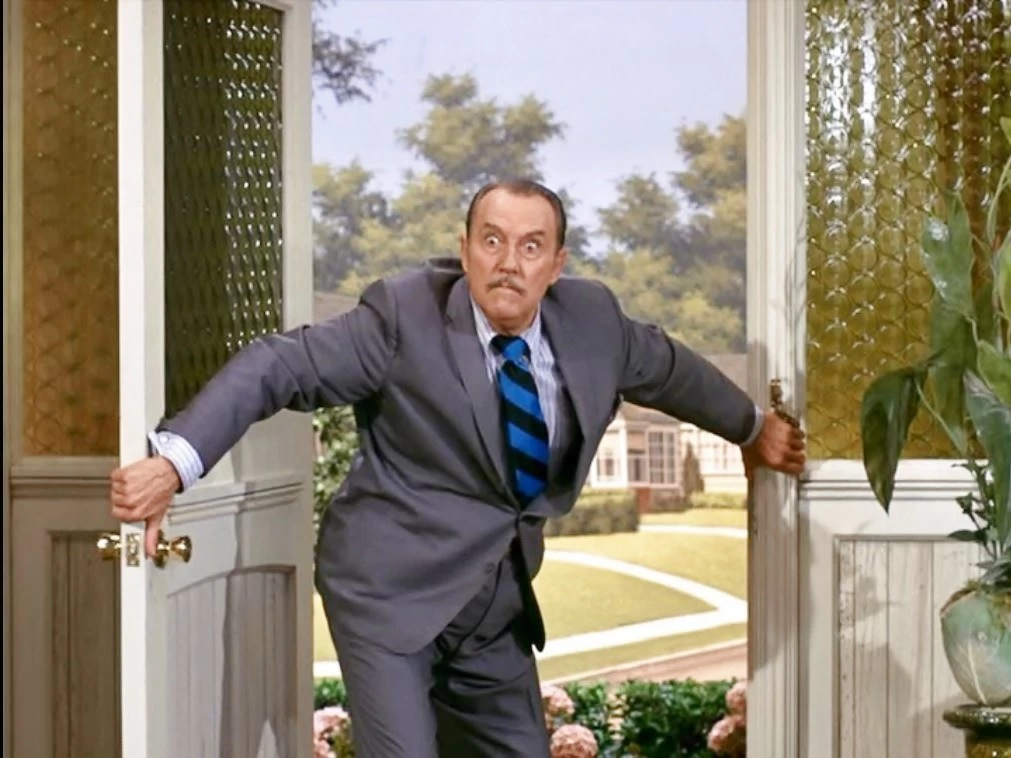
Ed McMahon. Yeah, Johnny Carson’s sidekick has a major role in this special, as Lucy’s husband, Floyd Whittaker, and Gordon’s son. That’s a little more believable. McMahon was born in 1923, 17 years after Gale Gordon. McMahon had guest starred twice on Here’s Lucy. He, too, does a good job. If he had wanted to be a regular on a sitcom, I have to think he could have had that career.
Vivian Vance. Of course, she was going to be on a Lucille Ball special – playing Lucy Whittaker’s neighbor named Viv. Sadly, though – and another reason to watch Lucy Calls the President – this was Ms. Vance’s second to last screen appearance. (Her last appearance was in a crime drama about a police dog called Sam that lasted only six episodes; it starred a young Mark Harmon, who would go onto much greater fame with St. Elsewhere and NCIS.). In 1977, when she filmed Lucy Calls the President, Vance had had a minor stroke earlier in the year and was about two years away from dying of breast cancer. She seems perfectly fine in this special, though, to me. I've read that other fans have thought she didn't look so hot.
Anyway, it’s a treat to see Vance. She’s in quite a bit of the show.
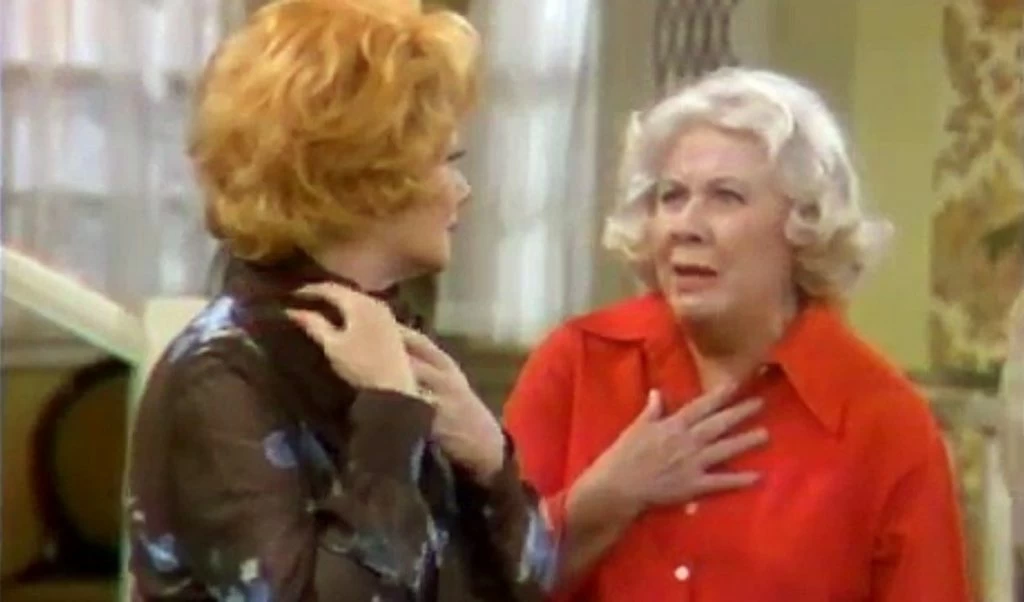
Mary Jane Croft. Lucille Ball fans are well acquainted with Mary Jane Croft's work. She had been working with Lucille Ball since Ball's radio program, My Favorite Husband, which aired from 1948 to 1951. Gale Gordon got to know Lucille Ball then, too, joining the cast as her boss, Rudolph Atterbury. Once I Love Lucy began, Mary Jane Croft wound up doing seven episodes, mostly as a neighbor called Betty Ramsey.
But in The Lucy Show, she really was present, first playing a character named Audrey Simmons and then playing Mary Jane Lewis, one of Lucy’s best friends. She also was a semi-regular cast member as another friend named Mary Jane in Here’s Lucy.
So, of course, she was going to be invited to perform in Lucy Calls the President. Mary Jane, in this special, throws us for a loop and doesn’t play somebody named Mary Jane but Midge Bowser, wife of the mayor of Bundy, Indiana. Ms. Croft passed away in 1999 and basically retired after this TV special.
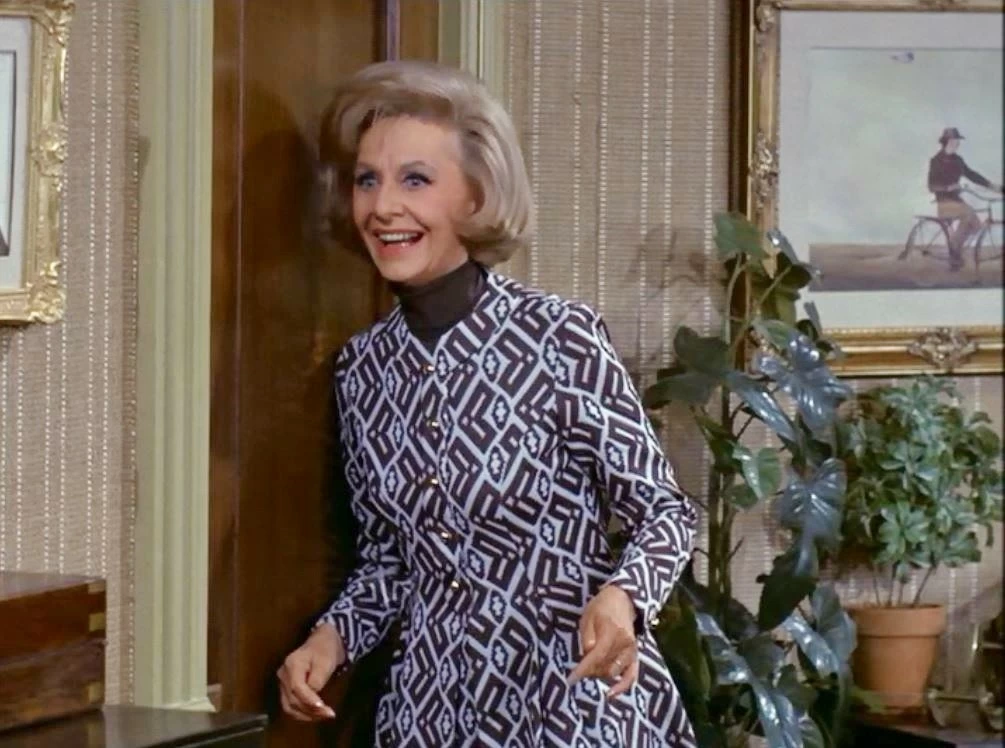
Mary Wickes. She was a pal of Lucille’s ball and a former neighbor. She had made an appearance on I Love Lucy as Madame Lamond in the first season, in an episode called “The Ballet.” (She tries to teach Lucy to be graceful on stage, with not so hot results.) She also appeared on The Lucy Show as various characters nine times and coincidentally (apparently) in nine episodes of Here’s Lucy, playing numerous characters. She plays Aunt Millie, the aunt of either Lucy or Floyd.
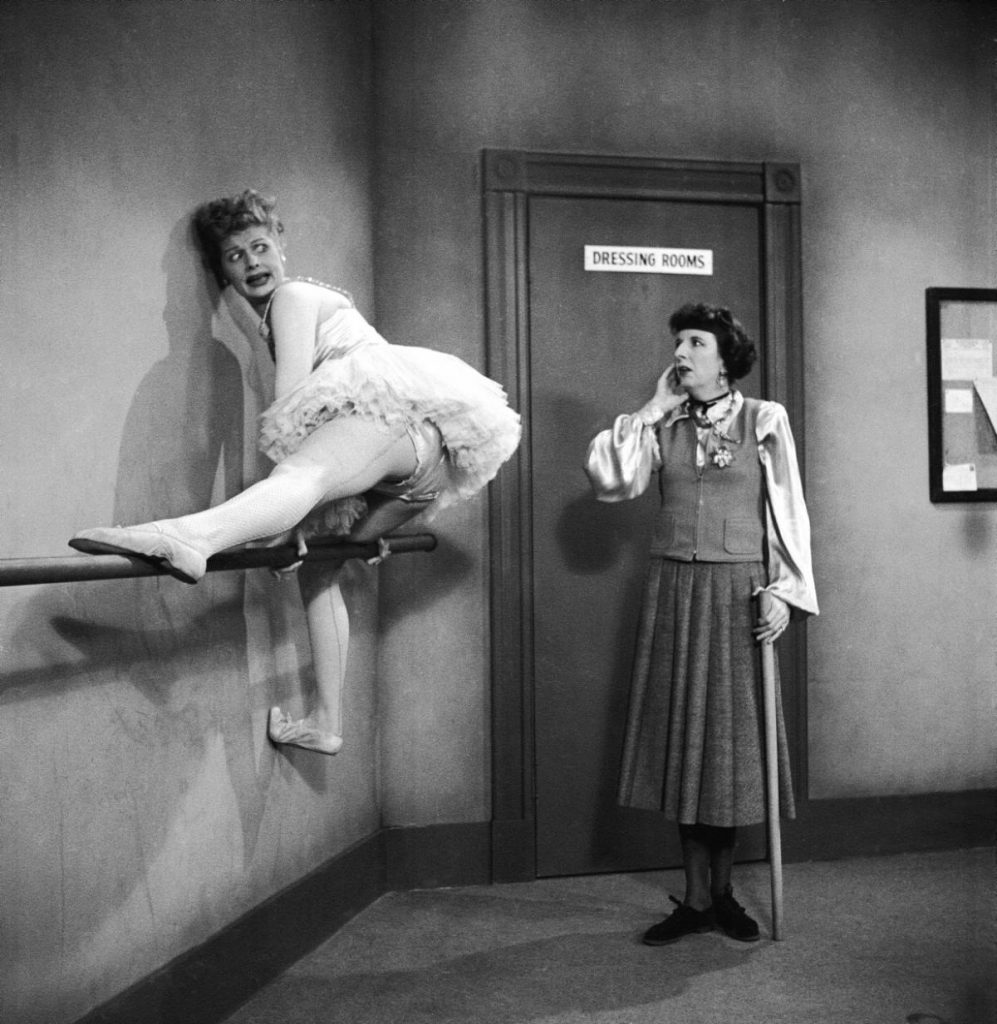
Steve Allen. Allen, who was the first host of The Tonight Show, plays himself in the Lucille Ball special. He interviews Lucy for his new TV show, The People Watchers, which, like the town of Bundy, doesn’t actually exist. (That said, maybe it was an Easter egg for fans who liked Allen in The Steve Allen Show, which aired from 1956 to 1960. They had a recurring segment called, “The People Watchers Society.”) In the Lucy Calls the President special, Steve Allen is naturally interested in Lucy Whittaker because he figures his audience wants to know who this woman is, who will soon be visited by the president of the United States.
It's fun to see Allen, who seems to be having a good time, despite some real groaners in the script. Allen asks how the town has reacted to the news that the president will be coming to Lucy’s house.
“The town is bananas,” Lucy says.
“Oh, really? I thought the town was Bundy,” Allen says.
Joey Forman. He plays a secret service agent and was in a 1975 Lucille Ball special called Lucy Gets Lucky. That, unfortunately, doesn’t seem to be available on streaming, but it is available on video, along with another special she did with Jackie Gleason.
Anyway, you get the point. Ms. Ball was able to turn this special into something of a reunion or party for herself, working with close friends and performers she really liked.
"We had a ball," Lucy told Shales. "It was a big, wonderful reunion. Vivian and I hadn't worked together in years, years.”
(Five years, if you’re wondering. Ball and Vance last worked together in an episode of Here’s Lucy.)
There were other little bits of interesting information in Ms. Ball’s interview with Shales. She talked about her leg, which she had injured in a skiing accident several years earlier, during her run on Here’s Lucy.
"My leg is fine, but I can't jump up and down on it or do the physical things that I love to do," Ball said.
She also commented on the popular hit of the time, All in the Family. Ms. Ball didn’t approve of the episode in which Edith gets raped, a two-parter that had aired about a month before her special. Ironically, it had been written by two of her former scribes from I Love Lucy and some of Ms. Ball’s other series, Bob Weiskopf and Bob Schiller (neither of them wrote the Lucy Calls the President script).
“I didn’t like that,” Ball said. “I thought that was unnecessary. I wouldn't have done it. It was very well done, but I don't think they needed it."
The critical reception to Lucy Calls the President
Well, the TV critics didn’t exactly love it, at the least reviews I read. I think it's safe to say that they were hoping to.
Tom Shales of The Washington Post wrote, “On 'The Lucille Ball Special,' Lucy tries to recapture the madcap charm of those early shows and, even at 66, shows a flair for slapstick and comic timing. But the script is feeble and formula, the mishaps contrived, and the median age of the cast so high that the hour begins to look like the Miami Beach follies of 1977. The pathos is all unintentional; it would be better if the writers had put some in on purpose."
Bill Carter of The New York Times wrote, “An objective observer might note that Lucy is getting a bit old for this kind of thing. All the pratfalls don't seem as funny as they once were. Maybe a lifetime of reruns has made her comedy moves too predictable."
They weren’t entirely wrong. I do think it was unfair to pick on Ms. Ball’s age. If you’re healthy enough to do physical comedy, then go for it. But as I’ve said before on the blog, with the aforementioned Three Stooges post, it was different in the 1970s. If you were older, you were expected to act elderly, whether you felt old or not, and that type of thinking probably hastened a lot of people's demise (that, and modern medicine wasn't as modern and advanced as it is now).
But one does get the sense that Lucy Calls the President was kind of rushed out onto the airwaves, whether true or not.
As Carter wrote, “…tonight's special has a forced quality to it, as though Lucy were trying to recapture something that is lost. She has enormous comedy talent, no one could dispute that. And it is remarkable the amount of laughs she can squeeze out of what amounts to a lot of old gags. But this special hardly seems to be worthy of the veteran star. Maybe it seems undignified to be still sitting in cakes when you are past 60. Lucy is such a mega-star it seems she ought to have some fresh material to work with. She has done all of this before--and better."
I agree with Carter’s 1977 thinking on the quality of the show, but as Carter noted in the same article, Lucille Ball had experimented with other types of specials in the last few years. The audiences wanted this type of comedy. Still, arguably, the audiences back then wanted this type of comedy done better.
Still, when all is said and done, Lucy Calls the President does nothing to tarnish her legacy. Could it have been better? Sure. But now that she's gone and no longer making us laugh, I’m glad she went ahead and filmed this with her friends and colleagues rather than hanging out with them off screen. As time goes by, this is a Lucille Ball special that only becomes more so.
Where you can watch Lucy Calls the President (at the time of this writing): As with previous "time streaming capsule" segments, you can find this show on TubiTV.com, a free streaming service. I don’t have stock TubiTV, although I mention it enough on this blog that it may seem like it. I’ve just so far found it to be a treasure trove when it comes to classic TV and obscure shows.
The previous "time streaming capsule": the crime drama, Decoy (1957-58), the first American television series to have a police woman as the protagonist.

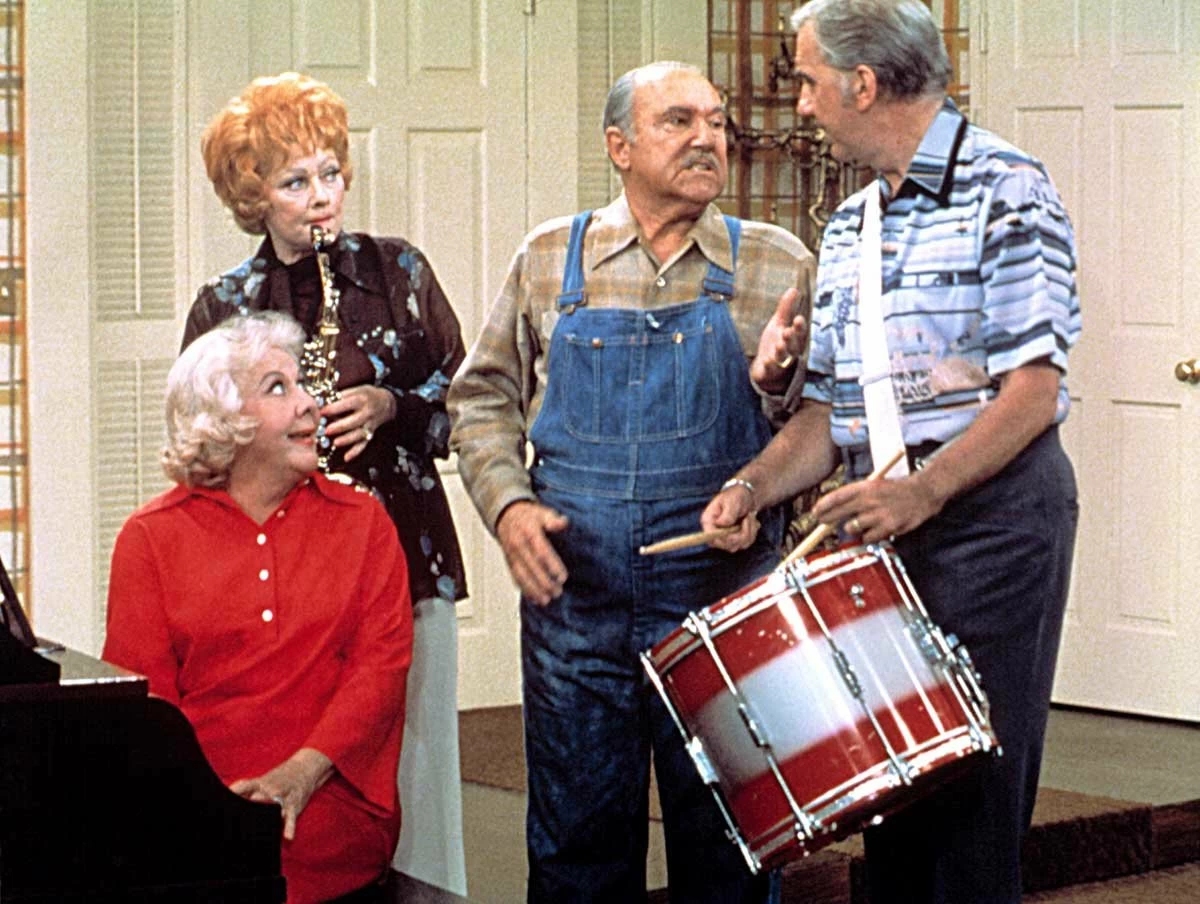
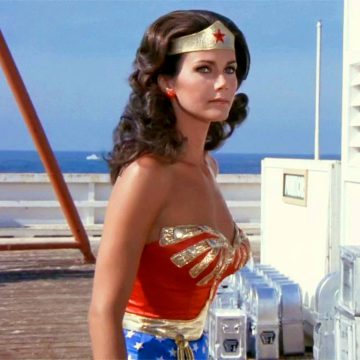
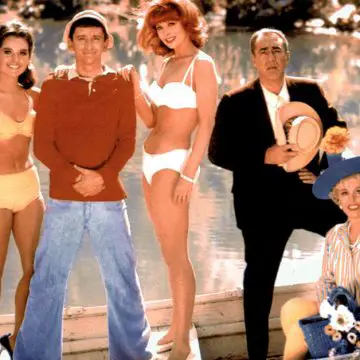
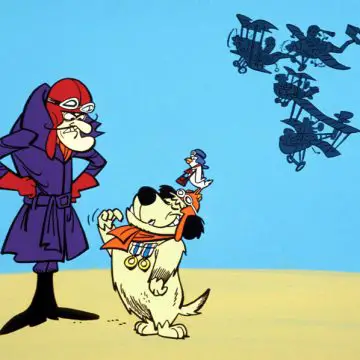
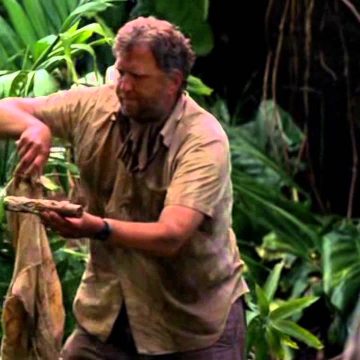
Eileen Kailholz
Dear TV Professor, I really enjoyed this blog about Lucille Ball. It’s fun to take the trip down memory lane, even tho I didn’t watch much of her later shows. I knew some of the actors, not others. Mary Wickes is one of my favorites, always enjoyable. My favorite role of hers was the busybody character in the movie, White Christmas. But I digress. “I love Lucy” is right up there in the classic category for sure. And I never saw the episode of All In The Family where Edith got raped, unless I’ve forgotten. I agree with Lucy on that one. I admit I haven’t progressed with TV shows. My opinion is not fair, but I think real comedy has been replaced with pathetic efforts to be funny…I don’t enjoy the bad language and dress. Color me old-fashioned.
Now on to the next one. Thanks Geoff.
The TV Professor
Glad you enjoyed the Lucille Ball post. Just quick thoughts: Mary Wickes was wonderful; I agree... The "All in the Family" one where Edith was raped was late in the series, but really, really well done. Even Lucille Ball admitted that 🙂 So if you ever get the chance, it's definitely worth watching... and nothing wrong with being old-fashioned. As for today's comedies, I admit that I generally love them -- some of them as much as yesterday's. My only complaint is that there aren't as many sitcoms as there used to be. You might enjoy "The Neighborhood" on CBS. It has kind of an old-fashioned vibe where it sort of hearkens back to earlier comedies. "The Goldbergs" on ABC is also well done, and I found it hilarious for awhile, though I found the episodes pretty formulaic after awhile... anyway, never mind. I could talk about this all day 🙂 Thanks for your comments!